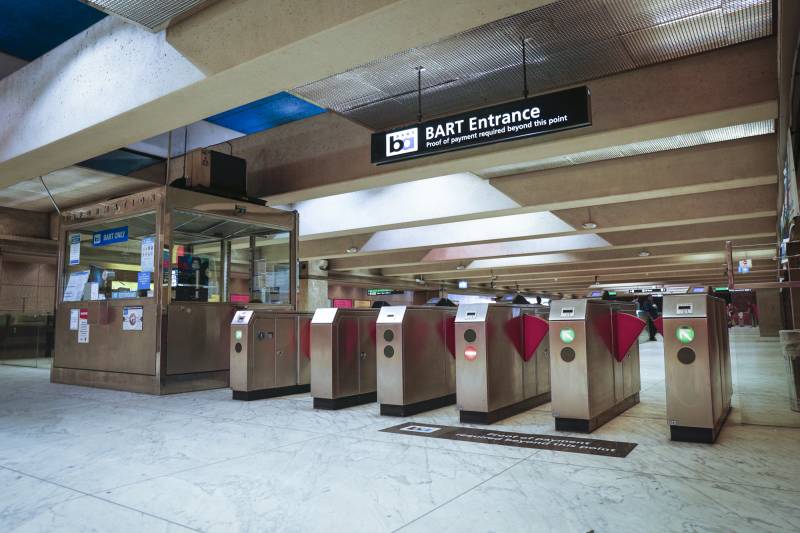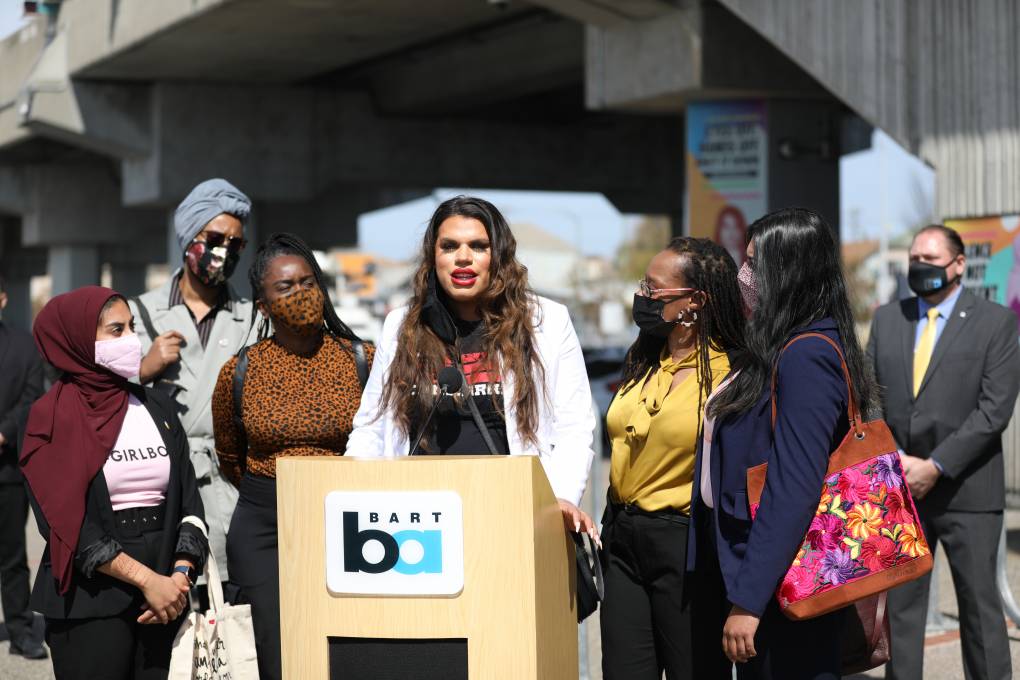“All of those things I 100% support, and I think that is the big picture, and that is what the riders, that is what the general public wants,” Li said. “They want to know that we’re going to be there and that we are doing everything we can to prevent and intervene harm from occurring in our stations.”
Li also pointed to BART police statistics that suggest the proposed change in the fare evasion law would have little impact on the agency.
According to the police data presented to the board in a staff report, officers issued about 2,350 citations for fare evasion in 2021; 48 of those were criminal misdemeanor citations issued to those who had failed to pay a fare three or more times. In 2022, officers wrote 1,800 citations, with 26 being misdemeanors that could carry criminal penalties.
“Due to the infrequency of misdemeanor cases referred for fare evasion in 2021 and 2022, if AB 819 becomes law, the impact on the district would likely be insignificant,” the report concluded.
Like Li, board member Rebecca Saltzman said she’d prefer the board not take a position on AB 819.
Saltzman, whose district covers parts of Berkeley, El Cerrito, Orinda and Lafayette, went on to say she supports the bill’s intent to end criminal prosecution of fare evasion, pointing to the non-criminal treatment of drivers who commit similar offenses.
“There are a lot of infractions in our society around cars — parking tickets, evading tolls. None of those lead to a misdemeanor just because you have a bunch of them,” Saltzman said.
“So why is it that I could get 10, 20 parking tickets, evade tolls 10, 20 times, and I’m still not getting a misdemeanor, but because I dare to ride transit and don’t have the fare to pay, I get a misdemeanor?” she asked. “It’s just totally inconsistent. And I think that’s the goal of this bill, to bring it in line with the rest of the ways we enforce in our society.”
One of those who supported Allen’s motion, however, was San Francisco’s Bevan Dufty, who broke with his progressive allies on the board.
Dufty noted that his district includes some of the “most difficult” stations in the BART system, including Civic Center and the two Mission District stations, at 16th Street and 24th Street.
“I have stations that have public safety issues,” Dufty said. “I have stations that can be great one minute and 20 minutes later it’s going off the rails, to use a bad analogy.”
Like Allen, Dufty said he was voting to oppose AB 819 as a response to rider concerns about safety.
“For us to support this legislation or remain neutral on it, I think it does not reflect … the reality that our riders are looking for indications at every turn that we are taking these things seriously,” he said.
Allen and Dufty were joined by Robert Raburn (Oakland), Mark Foley (Antioch) and John McPartland (Castro Valley) in voting to oppose the bill. Lateefah Simon, whose district stretches from western Contra Costa through Bayview-Hunters Point in San Francisco, voted with Li and Saltzman against the motion.
Supporters of the bill argue fare evasion should be decriminalized because data from Los Angeles, Washington, D.C., and several other cities show huge disparities between the number of Black riders using transit systems and the number of fare evasion citations they receive.
In a 2016 civil rights complaint (PDF) filed with the U.S. Department of Transportation, for instance, the Los Angeles’ Labor Community Strategy Center said its review of several years of LA Metro data found that Black passengers made up about 19% of the system’s ridership but received more than 50% of fare evasion citations. The percentages of citations issued to Latino, white and Asian riders were all lower than those groups’ ridership shares.
A similar analysis (PDF) released in 2018 by the Washington Lawyers’ Committee for Civil Rights and Urban Affairs looked at 25 months of fare enforcement data from D.C. Metro rail and bus systems. The study found that 91% of the citations issued on Metro went to Black passengers, whom district statistics show made up about 40% of passengers.
The bill being debated, AB 819, passed the Assembly in May by a vote of 61–12, with all Bay Area legislators voting yes. The bill was approved by the Senate Public Safety Committee last month and now awaits action in the Senate’s Appropriations Committee when the Legislature returns from its summer recess next month.


